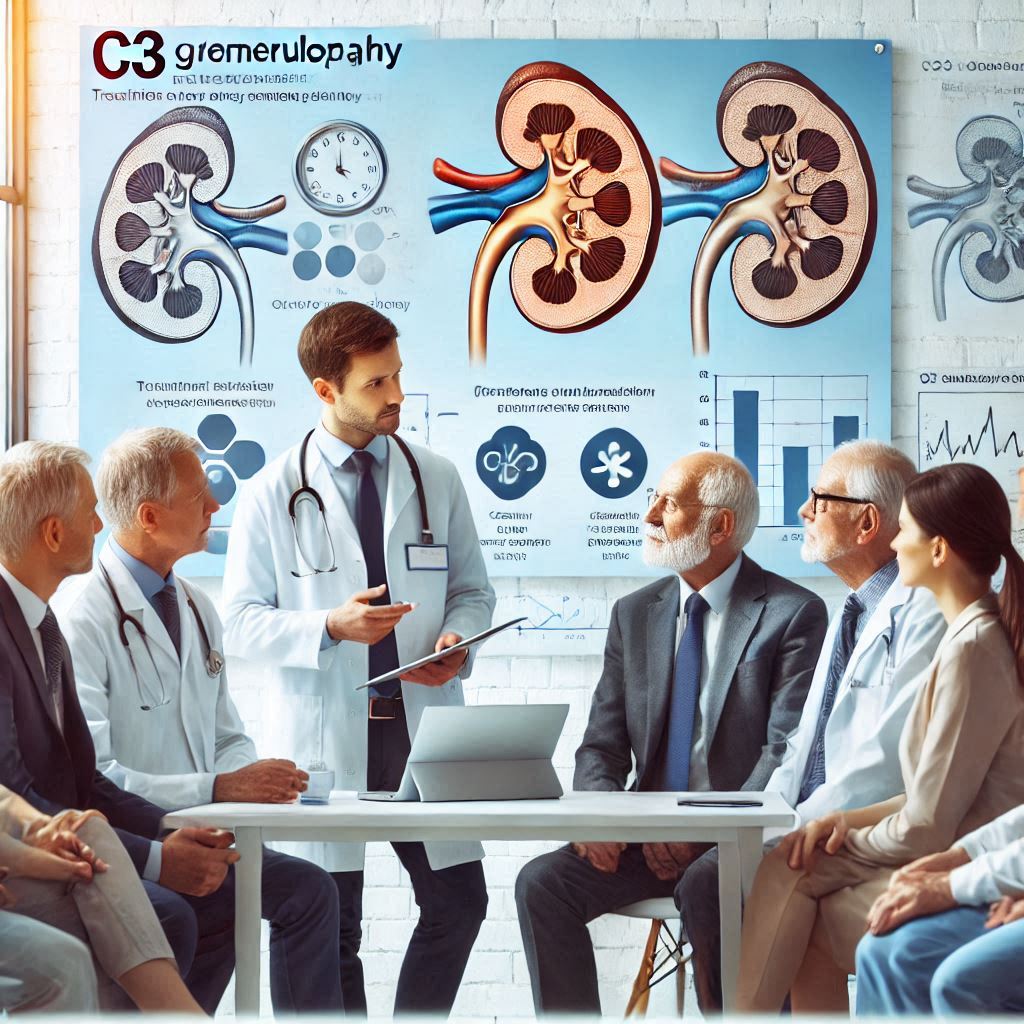Introduction
Kidney diseases can be difficult to diagnose. Some conditions, like C3 Glomerulopathy, affect how the immune system regulates kidney function. Others, like Focal Segmental Glomerulosclerosis (FSGS), damage kidney filters and impact overall health. Understanding these conditions helps patients and doctors explore treatment options and manage symptoms.
At NephCure Inc., we focus on research and support for rare kidney diseases.
Here’s what you need to know about C3 Glomerulopathy symptoms and Focal Segmental Glomerulosclerosis.
C3 Glomerulopathy Symptoms: Signs of Immune System Dysfunction
C3 Glomerulopathy is a rare kidney disease. It occurs when proteins involved in immune regulation attack healthy kidney tissue.
Common C3 Glomerulopathy Symptoms
- Blood in urine (hematuria) – Red or brown-colored urine caused by damaged blood vessels.
- Protein in urine (proteinuria) – Excess protein leaks into urine due to impaired filtration.
- Swelling (edema) – Fluid builds up in the body, especially in the legs and around the eyes.
- High blood pressure – Poor kidney function affects pressure regulation.
- Reduced kidney function – Kidneys struggle to remove waste efficiently.
Managing C3 Glomerulopathy
Doctors focus on controlling symptoms with:
- Blood pressure medication – Helps prevent further kidney damage.
- Diet adjustments – Lowering salt and protein intake reduces strain on the kidneys.
- Immune system treatments – Some medications help regulate immune activity.
- Regular monitoring – Routine tests track disease progression.
At NephCure Inc., we support research into better treatments for C3 Glomerulopathy symptoms.
Focal Segmental Glomerulosclerosis: Understanding Kidney Scarring
FSGS is a disease that causes scarring in parts of the kidney’s filtering units (glomeruli). These scars make it harder for the kidneys to remove waste from the blood.
What Causes Focal Segmental Glomerulosclerosis?
- Genetic mutations – Some patients inherit a higher risk of developing FSGS.
- Immune system dysfunction – The body mistakenly damages kidney filters.
- High blood pressure – Increased pressure weakens kidney structures over time.
- Obesity or diabetes – Conditions that strain the kidneys may lead to FSGS.
Managing Focal Segmental Glomerulosclerosis
Treatment focuses on slowing damage and managing symptoms, including:
- Blood pressure control – Stabilizing blood pressure helps protect kidney function.
- Reducing protein loss – Medications limit the amount of protein leaking into urine.
- Lifestyle changes – Maintaining a healthy diet and exercise routine supports kidney health.
- Research and new treatments – Clinical trials explore new ways to treat FSGS.
At NephCure Inc., we work to improve awareness of Focal Segmental Glomerulosclerosis and its management.
Why NephCure Inc. Supports Kidney Disease Research
At NephCure Inc., we are committed to advancing treatment options for rare kidney diseases.
- Supporting scientific research – Funding studies that explore new therapies.
- Providing patient resources – Helping individuals understand their diagnosis.
- Connecting experts and patients – Building a network for better care.
- Raising awareness – Ensuring rare kidney diseases get the attention they deserve.
If you want to learn more about C3 Glomerulopathy symptoms or Focal Segmental Glomerulosclerosis, we should meet tomorrow. Contact NephCure Inc. today to get involved.
